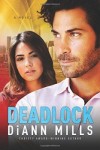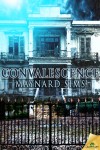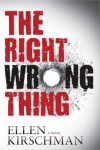

October 5 – 11: “What is the best change you ever received from an editor? The worst?”
 Some editors make big changes in a manuscript. This week ITW Members DiAnn Mills, Eric Beetner, Ellen Kirschman, Mick Sims and Len Maynard, Tom Avitable, and Kira Peikoff discuss the best changes they’ve ever received from an editor, as well as the worst.
Some editors make big changes in a manuscript. This week ITW Members DiAnn Mills, Eric Beetner, Ellen Kirschman, Mick Sims and Len Maynard, Tom Avitable, and Kira Peikoff discuss the best changes they’ve ever received from an editor, as well as the worst.
~~~~~
 DiAnn Mills is a bestselling author who believes her readers should expect an adventure. She creates action-packed, suspense-filled novels to thrill readers. Her titles have appeared on the CBA and ECPA bestseller lists; won two Christy Awards; and been finalists for the RITA, Daphne Du Maurier, Inspirational Readers’ Choice, and Carol award contests. Library Journal presented her with a Best Books 2014: Genre Fiction award in the Christian Fiction category for Firewall.
DiAnn Mills is a bestselling author who believes her readers should expect an adventure. She creates action-packed, suspense-filled novels to thrill readers. Her titles have appeared on the CBA and ECPA bestseller lists; won two Christy Awards; and been finalists for the RITA, Daphne Du Maurier, Inspirational Readers’ Choice, and Carol award contests. Library Journal presented her with a Best Books 2014: Genre Fiction award in the Christian Fiction category for Firewall.
 Maynard & Sims are the authors of fifteen novels with more scheduled, as well as numerous novellas and stories. They have won awards for screenplays, have been editors, essayists, publishers and reviewers. They are currently working on new novels, novellas, stories and screenplays.
Maynard & Sims are the authors of fifteen novels with more scheduled, as well as numerous novellas and stories. They have won awards for screenplays, have been editors, essayists, publishers and reviewers. They are currently working on new novels, novellas, stories and screenplays.
 Eric Beetner writes hardboiled crime fiction. A lot of it, with more to come. Many folks have said nice things about his books. He’s won a few awards like the 2012 Stalker award for Most Criminally Underrated author. He lives in Los Angeles where he co-hosts the Noir At The Bar reading series.
Eric Beetner writes hardboiled crime fiction. A lot of it, with more to come. Many folks have said nice things about his books. He’s won a few awards like the 2012 Stalker award for Most Criminally Underrated author. He lives in Los Angeles where he co-hosts the Noir At The Bar reading series.
 Ellen Kirschman Ph.D is a clinical psychologist in independent practice. She is a member of the International Association of Chiefs of Police, the Society for the Study of Police and Criminal Psychology, the American Psychological Association, and the International Association of Women in Law Enforcement. She is the recipient of the California Psychological Association’s 2014 award for distinguished contribution to psychology as well as the American Psychological Association’s 2010 award for outstanding contribution to the practice of police and public safety psychology. Ellen is the author of the award winning I Love a Cop: What Police Families Need to Know, I Love a Fire Fighter: What the Family Needs to Know, and lead author of Counseling Cops: What Clinicians Need to Know (2013). Her debut novel, Burying Ben: A Dot Meyerhoff Mystery (2013) is about police suicide told from the perspective of the psychologist. Ellen and her husband live in Redwood City, California.
Ellen Kirschman Ph.D is a clinical psychologist in independent practice. She is a member of the International Association of Chiefs of Police, the Society for the Study of Police and Criminal Psychology, the American Psychological Association, and the International Association of Women in Law Enforcement. She is the recipient of the California Psychological Association’s 2014 award for distinguished contribution to psychology as well as the American Psychological Association’s 2010 award for outstanding contribution to the practice of police and public safety psychology. Ellen is the author of the award winning I Love a Cop: What Police Families Need to Know, I Love a Fire Fighter: What the Family Needs to Know, and lead author of Counseling Cops: What Clinicians Need to Know (2013). Her debut novel, Burying Ben: A Dot Meyerhoff Mystery (2013) is about police suicide told from the perspective of the psychologist. Ellen and her husband live in Redwood City, California.
 Tom Avitabile, a Senior V.P./Creative Director at a New York advertising firm, is a writer, director, and producer with numerous film and television credits. His extensive background in computers and engineering led him to work with the House Committee on Science Space and Technology. Tom’s powerful imagination, fed from his experiences in Washington, allowed him to conjure up not only possible security threats, but also real life scenarios relating to how the government and individuals would respond to the high-tech assaults that are featured prominently in his three book “thrillogy.” These novels chronicle the exploits of Science Advisor to the President, “Wild” Bill Hiccock. The first techno-thriller of this series, The Eighth Day, became a Barnes and Noble #1 bestseller. In his next thriller, The Devil’s Quota, Avitabile departs from the high-tech genre and sheds daylight on an evil international syndicate, a story of sexual deviation, greed, human trafficking and corruption.
Tom Avitabile, a Senior V.P./Creative Director at a New York advertising firm, is a writer, director, and producer with numerous film and television credits. His extensive background in computers and engineering led him to work with the House Committee on Science Space and Technology. Tom’s powerful imagination, fed from his experiences in Washington, allowed him to conjure up not only possible security threats, but also real life scenarios relating to how the government and individuals would respond to the high-tech assaults that are featured prominently in his three book “thrillogy.” These novels chronicle the exploits of Science Advisor to the President, “Wild” Bill Hiccock. The first techno-thriller of this series, The Eighth Day, became a Barnes and Noble #1 bestseller. In his next thriller, The Devil’s Quota, Avitabile departs from the high-tech genre and sheds daylight on an evil international syndicate, a story of sexual deviation, greed, human trafficking and corruption.
 Kira Peikoff’s previous novel was the acclaimed No Time to Die. As a journalist, Kira covered street crime for The Daily News, Capitol Hill for The Orange County Register in Washington, D.C., business and technology for Newsday, and researched feature stories for New York magazine. She freelances for a variety of major media outlets, and attends Columbia University’s Master of Science program in Bioethics. She lives in New York City with her husband and dog.
Kira Peikoff’s previous novel was the acclaimed No Time to Die. As a journalist, Kira covered street crime for The Daily News, Capitol Hill for The Orange County Register in Washington, D.C., business and technology for Newsday, and researched feature stories for New York magazine. She freelances for a variety of major media outlets, and attends Columbia University’s Master of Science program in Bioethics. She lives in New York City with her husband and dog.
- LAST GIRL MISSING with K.L. Murphy - July 25, 2024
- CHILD OF DUST with Yigal Zur - July 25, 2024
- THE RAVENWOOD CONSPIRACY with Michael Siverling - July 19, 2024
